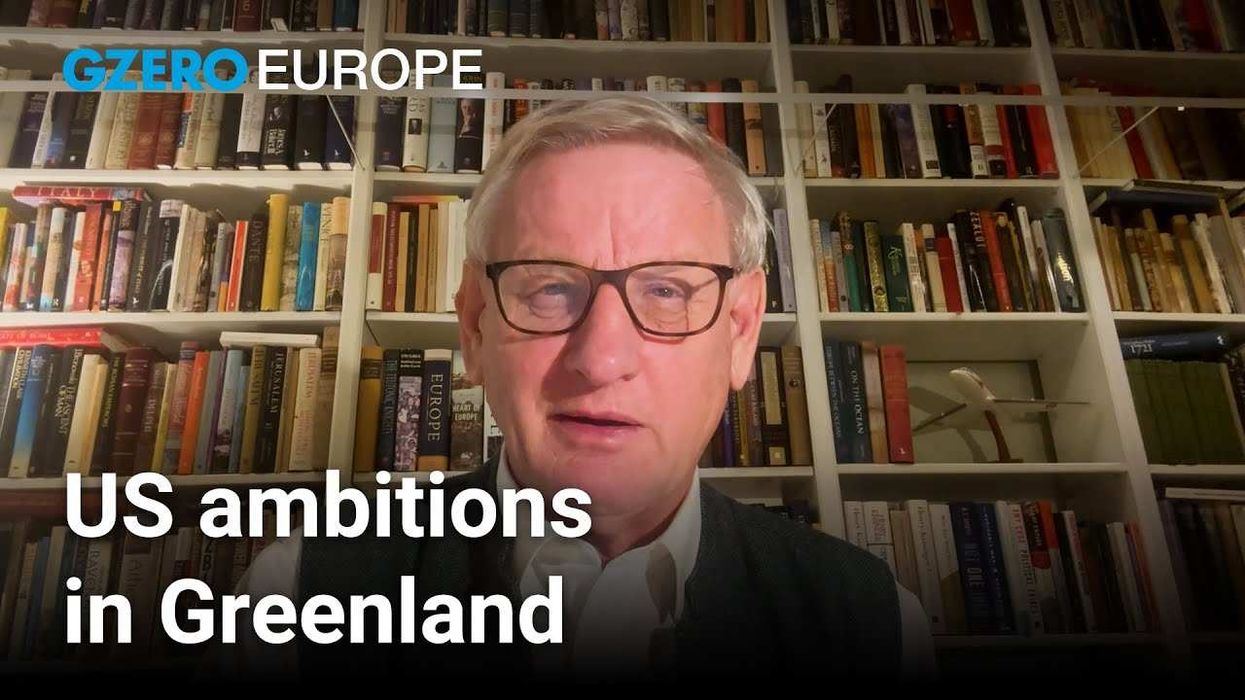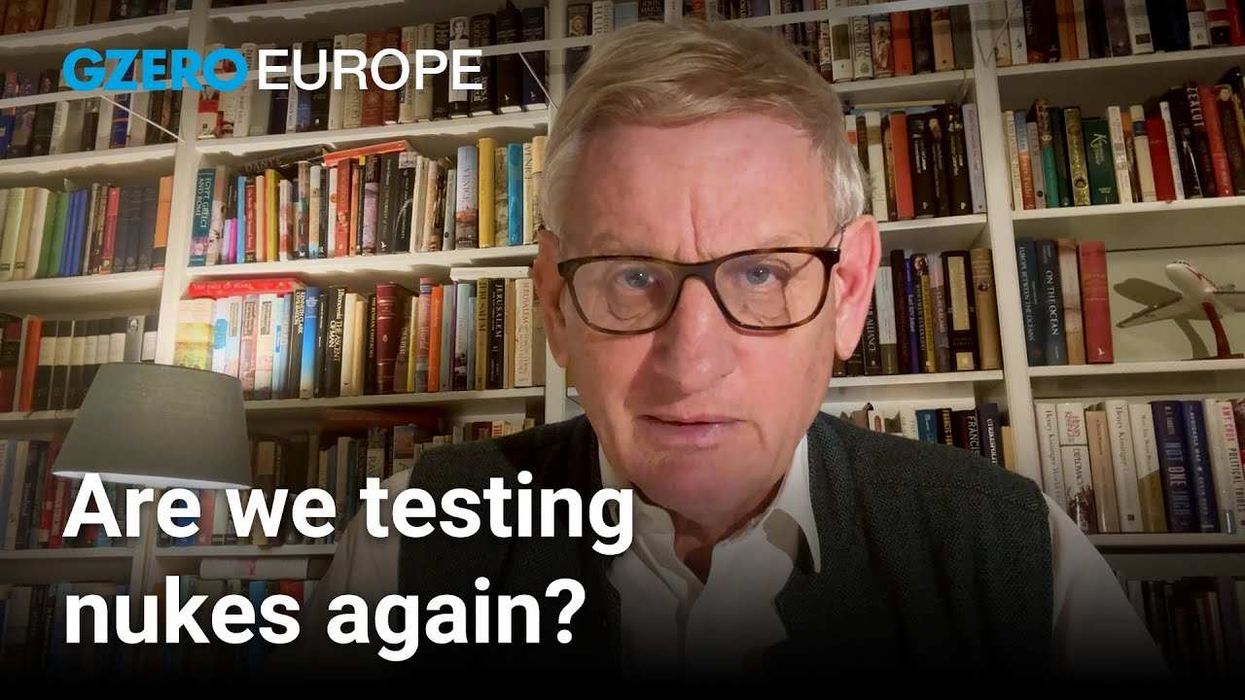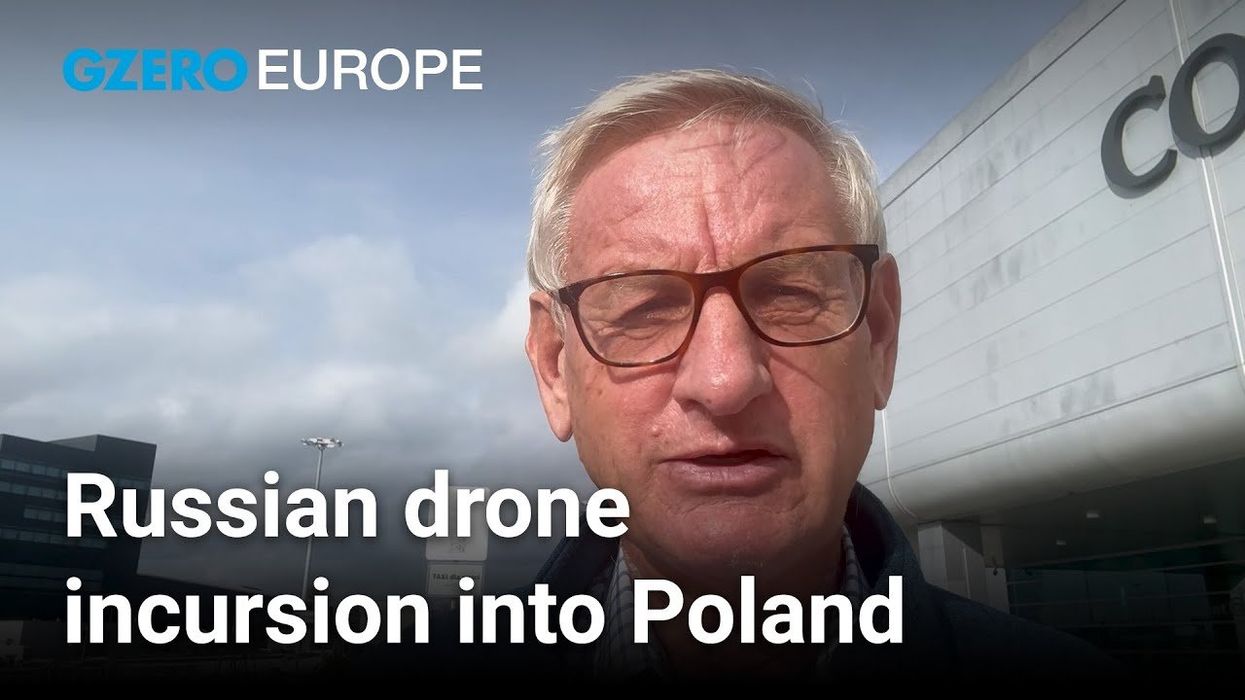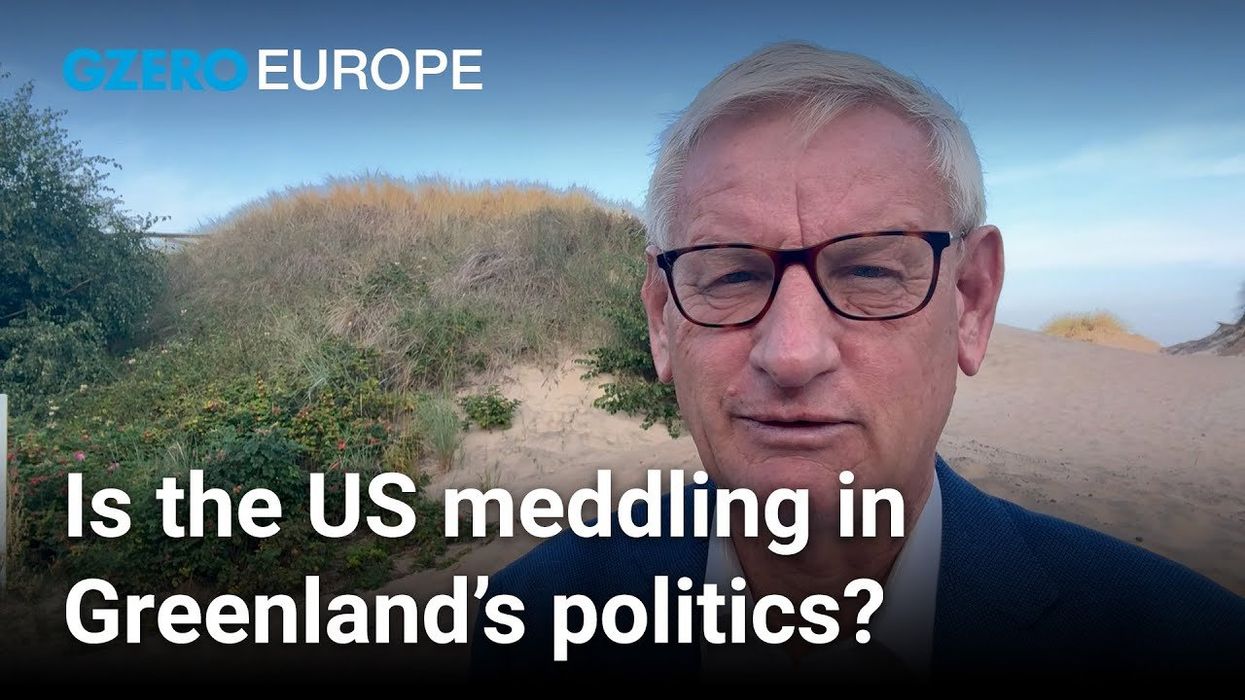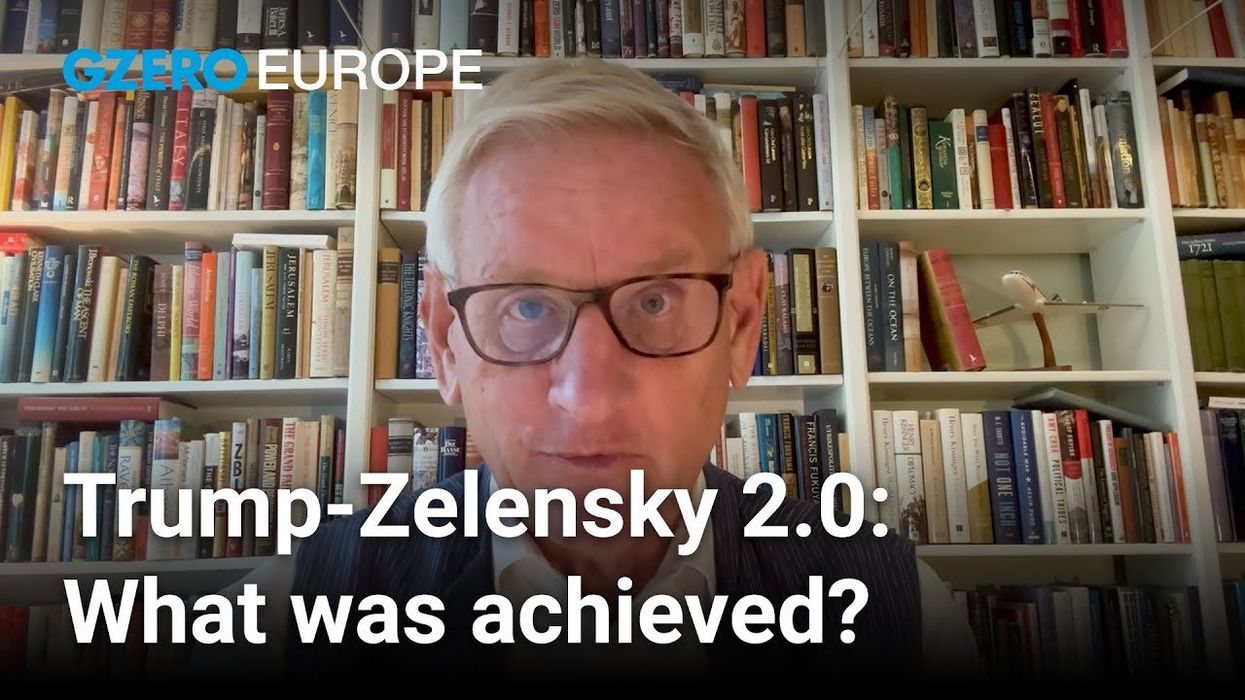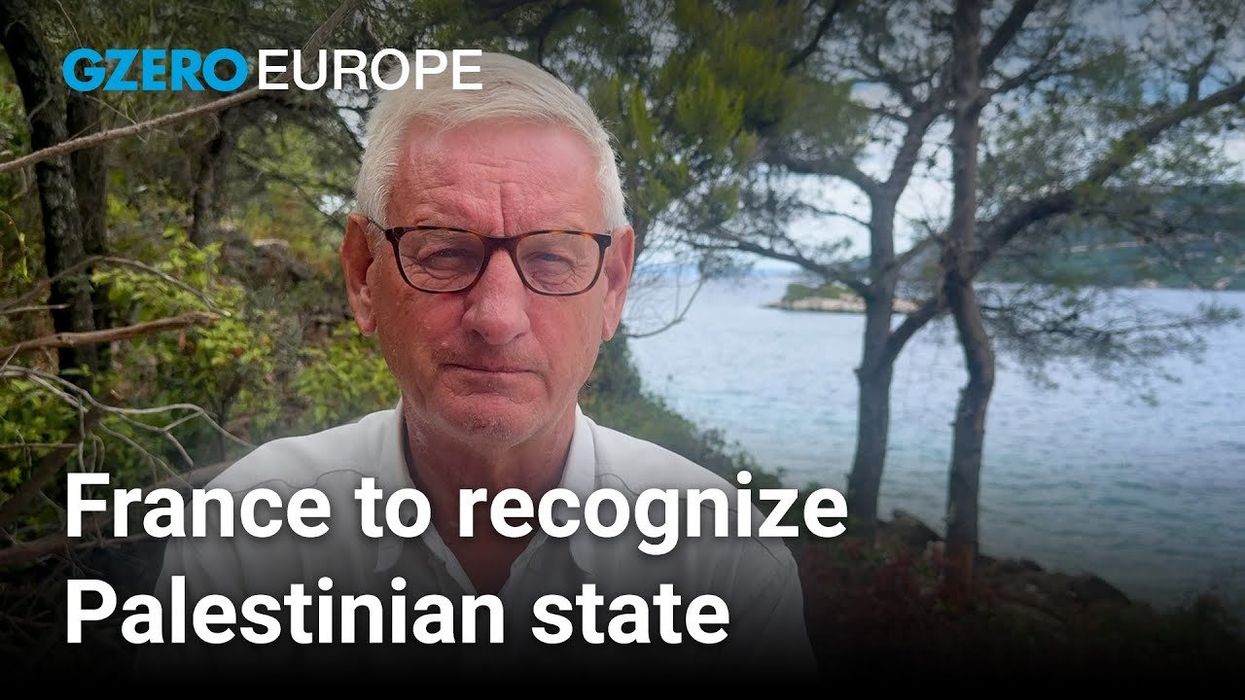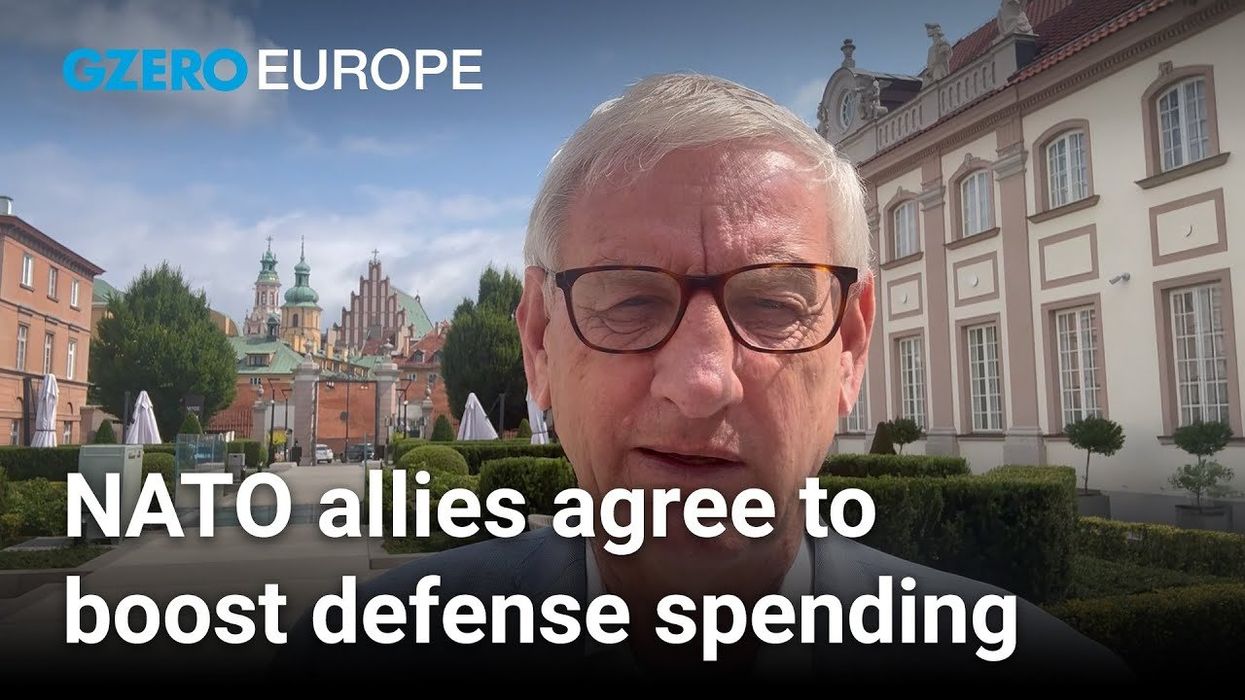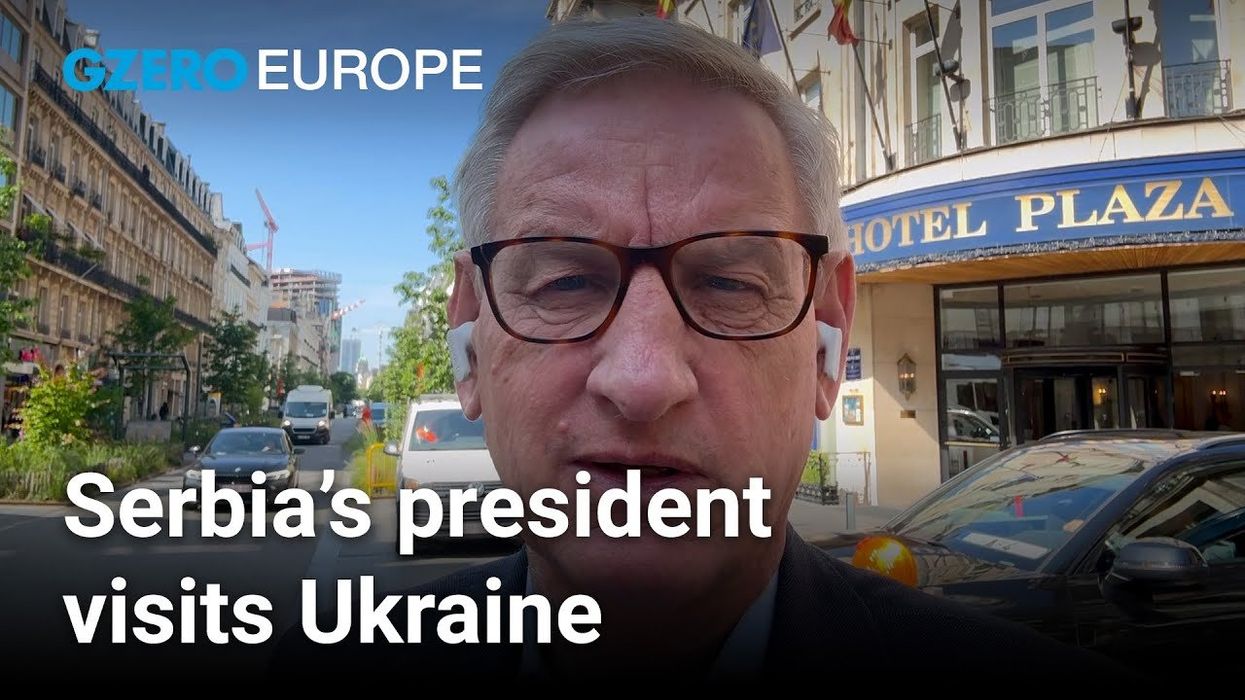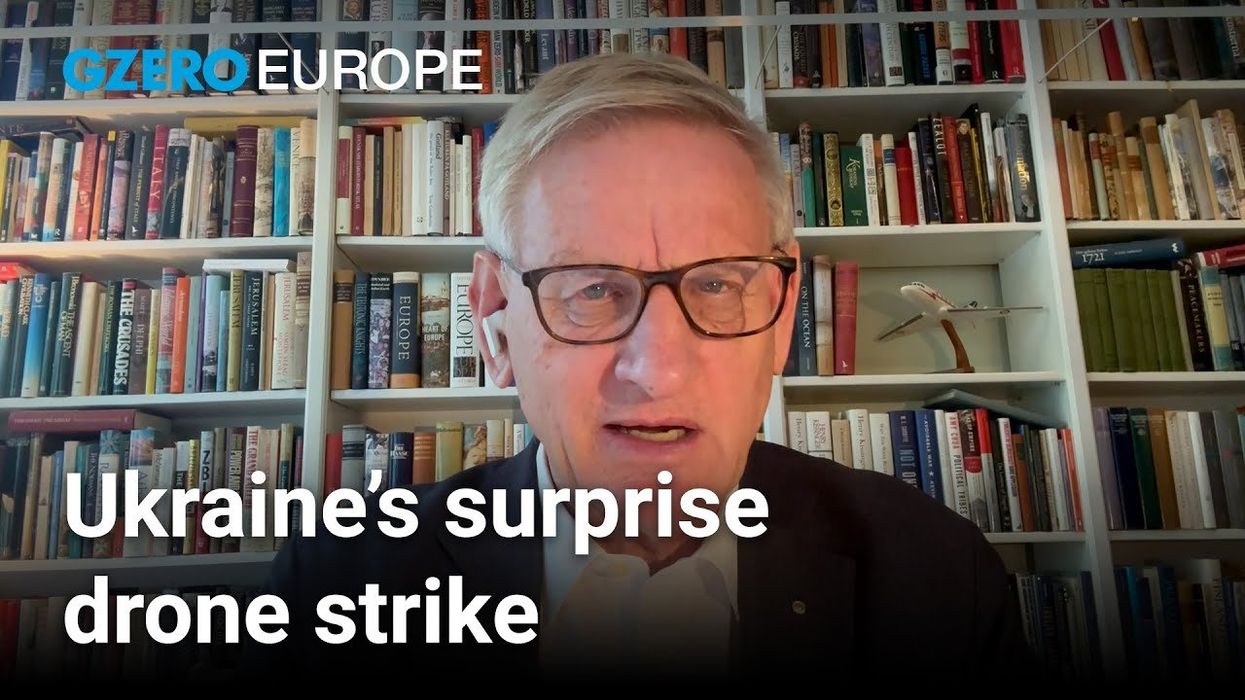VIDEOSGZERO World with Ian BremmerQuick TakePUPPET REGIMEIan ExplainsGZERO ReportsAsk IanGlobal Stage
Site Navigation
Search
Human content,
AI powered search.
Latest Stories
Sign up for GZERO Daily.
Get our latest updates and insights delivered to your inbox.
Global Stage: Live from Davos
WATCH
GZERO Europe
Watch insights on the latest news about Europe from Carl Bildt, former Prime Minister and Foreign Minister of Sweden.
Presented by
What's the situation of Europe one year after the October 7th attack against Israel? What's the main takeaway from the visit of the new NATO Secretary General to Kyiv? Carl Bildt, former prime minister of Sweden and co-chair of the European Council on Foreign Relations, shares his perspective on European politics from Lisbon, Portugal.
What's the situation of Europe one year after the October 7th attack against Israel?
Well, I think deep apprehension is the best way of summing it up. Fears that we will see a further escalation of the conflict. Could be further problems in Gaza, could be further problems in West Bank. But perhaps particular now the situation of Lebanon, where there's the risk that we will see a further meltdown by the way of Lebanon. And we already have a million people on the move inside Lebanon. We have perhaps 100,000 people who are trying to flee from Lebanon into Syria. Mind you, there was a million and a half fleeing from Syria into Lebanon a couple of years ago. And the fear that we will see any refugee flow coming out of that area into Europe with all of the problems that would entail. So, deep apprehension on that situation.
What's the main takeaway from the visit of the new NATO Secretary General to Kyiv?
I think it was important for Mark Rutte to go to Kiev as the first thing he did really as the new Secretary General of NATO in order to make very clear his personal commitment to Ukraine, and the fact that he would put that at the top of his list of priorities, much in the same way as outgoing Secretary Jens Stoltenberg has done during the last few years. So, that was an important signal in itself.
Keep reading...Show less
More from GZERO Europe
GZERO Europe
Jan 27, 2026
Why Trump’s Greenland threats alarm Europe
January 14, 2026
Trouble ahead for UK’s prime minister?
November 19, 2025
Are we entering a new era of nuclear weapons testing?
November 07, 2025
Warplanes strike Russian drones inside Poland
September 11, 2025
Trump-Putin-Zelensky meeting unlikely
August 19, 2025
Is Europe’s attitude towards Israel shifting?
July 29, 2025
Key takeaways from the 2025 NATO Summit
June 27, 2025
Is Serbia pivoting towards Ukraine?
June 12, 2025
Ukraine drone strikes deep inside Russia
June 05, 2025
Why the US-Ukraine minerals deal is a win-win
May 01, 2025
How Europe might respond to Trump's tariffs
April 03, 2025
Turkey's protests & crackdowns complicate EU relations
April 03, 2025
Is Europe finally ready to defend itself?
March 24, 2025
Is the US-Europe alliance permanently damaged?
March 05, 2025
Trump's Ukraine peace plan confuses Europe leaders
February 24, 2025
EU rolls back Syria sanctions for economic rebound
January 29, 2025
At Davos, all eyes are on Trump
January 23, 2025
Why NATO launches a Baltic Sea operation
January 15, 2025
Why is TikTok being investigated by the EU over Romania's elections?
December 20, 2024
Can Syria rebuild to welcome returning refugees?
December 11, 2024
What France's government collapse means for Macron and Europe
December 04, 2024
Europe's biggest concerns about Trump's return
November 19, 2024
Germany faces political uncertainty after coalition collapse
November 08, 2024
Europe's reaction to US election win: Gloom and despair
November 06, 2024
What does Russia give in exchange for North Korean troops?
October 28, 2024
EU Summit focuses on migration crisis
October 20, 2024
Is an EU-China trade war brewing?
October 14, 2024
Putin's nuclear policy revision is a sign of weakness
October 02, 2024
Can Zelensky's 'victory plan' bring peace to Ukraine?
September 24, 2024
Ukraine frustrated by delay on long-range weapons
September 16, 2024
Why Egypt and Turkey finally resumed relations
September 09, 2024
Starmer pursues EU alliances to soften Brexit blow
August 30, 2024
Ukraine's Kursk invasion complicates Putin's war efforts
August 22, 2024
Ukraine's capture of POWs undermines Russia's narrative
August 15, 2024
UK far-right riots and Elon Musk's role
August 08, 2024
How to Work from Home (effectively)
August 01, 2024
Starmer's plan to boost UK economy will take some time
July 22, 2024
UK's new PM Starmer aims for closer EU ties
July 08, 2024
How Ukraine's EU membership would change Europe
June 26, 2024
European Elections: What to expect
June 03, 2024
Why was Slovakia's Prime Minister attacked?
May 17, 2024
Ukraine will define the future of NATO
April 08, 2024
Moscow terror attack: What happens next?
March 23, 2024
Putin wins another classic Soviet election
March 18, 2024
Why Sweden and Finland joined NATO
March 08, 2024
Ukraine is still standing two years after Russian invasion
February 24, 2024
Alexei Navalny's death: A deep tragedy for Russia
February 16, 2024
US approves F-16s for Turkey, moving Sweden NATO membership closer
January 29, 2024
Ukraine pushes to stay top of mind at Davos 2024
January 17, 2024
Will Macron’s moves regain him popularity in France?
January 15, 2024
Europe's big political stories to watch in 2024
December 21, 2023
How will Henry Kissinger be remembered in Europe?
December 04, 2023
UN Security Council resolution calls for Gaza humanitarian pauses
November 16, 2023
Russia leaves nuclear test ban treaty in show of public posturing
November 06, 2023
Putin tries to advance in Ukraine while world focuses on Gaza
October 30, 2023
Can the EU get aid to Gaza?
October 18, 2023
Israel-Hamas war: How is Europe responding?
October 11, 2023
Kosovo-Serbia tensions worsen, hurting EU membership hopes
September 29, 2023
Ukraine-EU farm export dispute: Are there any consequences?
September 19, 2023
EU support for Ukraine holding up better than anyone expected
September 08, 2023
Sweden at higher risk of terrorism after Quran burnings
August 18, 2023
Ukraine's NATO & EU ambitions
July 14, 2023
French riots highlight policing problem
July 03, 2023
Prigozhin drama highlights Putin’s weakness
June 25, 2023
Boris Johnson remains a dangerous force in UK politics
June 15, 2023
Nervous mood in Russia after drone strikes
May 31, 2023
Expect another Erdogan presidency for Turkey
May 17, 2023
Sudan meltdown fuels Saharan instability
April 24, 2023
US intel leak could cause problems in Putin's Russia
April 17, 2023
Macron's China visit hasn't moved Xi on Ukraine
April 10, 2023
Swedish NATO bid caught in Erdoğan reelection effort
March 31, 2023
French protests strengthen the far right & far left
March 26, 2023
Israeli constitutional crisis despite compromise attempts
March 17, 2023
India's G-20 agenda overshadowed by Ukraine war
March 06, 2023
Ukraine war will last as long as Putin is in power
February 24, 2023
GZERO Series
GZERO Daily: our free newsletter about global politics
Keep up with what’s going on around the world - and why it matters.


